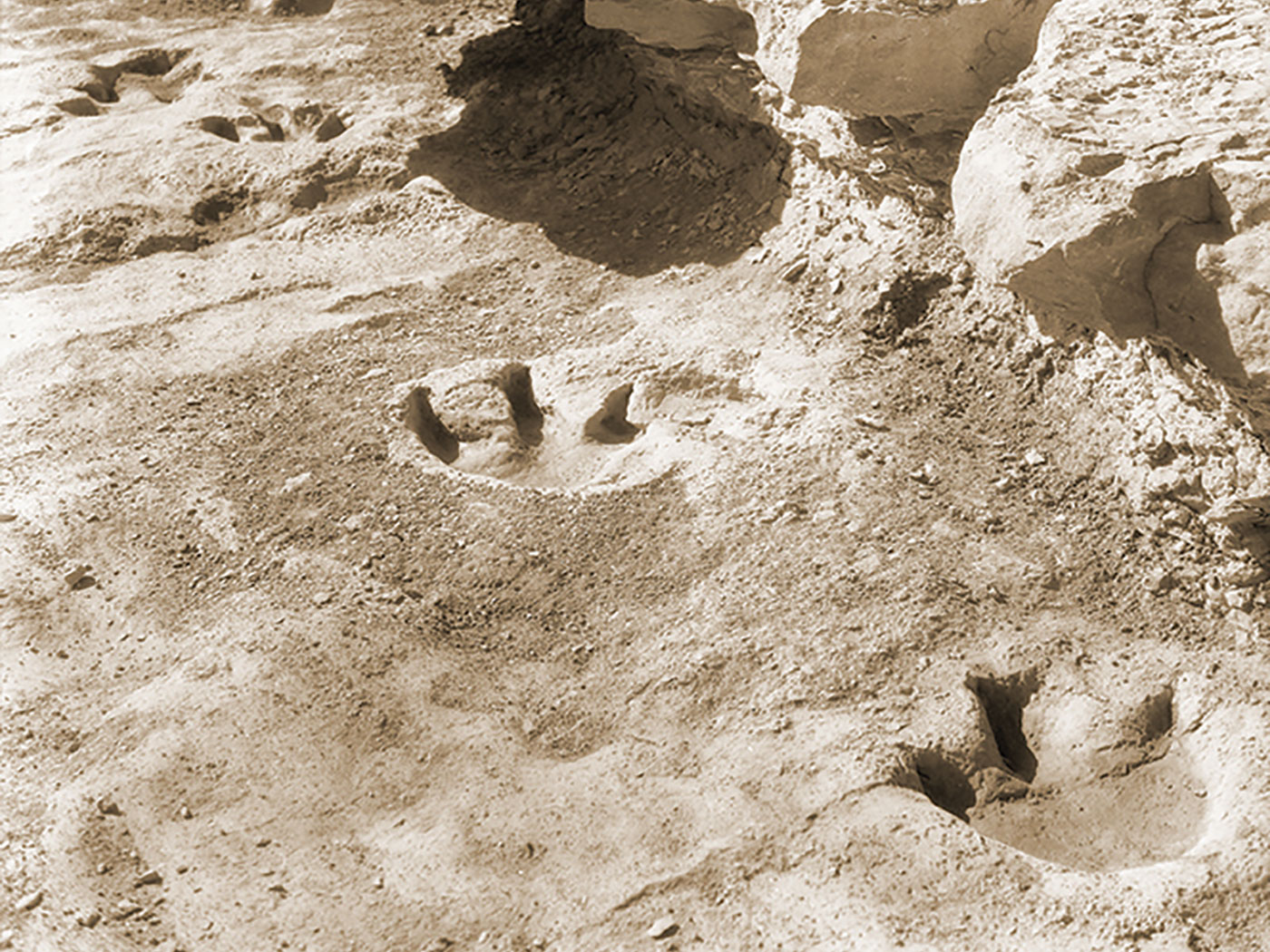Biology, a word derived from two Greek words, bios (“life”) and logos (“word”), is “the study of life.” The Bible is the written Word of God, according to its own claims and an abundance of evidence.
The Bible encourages—in fact, commands—the study of biology and all other factual science. The very first divine commandment given to man was: “Be fruitful, and multiply, and replenish the earth, and subdue it: and have dominion over the fish of the sea, and over the fowl of the air, and over every living thing that moveth upon the earth” (Genesis 1:28).
This “dominion mandate,” as it has been called, is in effect a command to “do science,” for Adam and his descendants could only “subdue” the earth and “have dominion” over all its living creatures by learning their nature and functions. This clearly implies the establishment of a “science” of biology, so that mankind could properly care for and utilize the world’s resources of animal and plant life as created by God.
There is thus no conflict at all between the Bible and biological science. But “evolutionary biology” is another matter. It is a philosophy, not science, an attempt to explain the origin and developmental history of all forms of life on a strictly naturalistic basis, without the intervention of special creation.
The Bible is opposed to evolutionary biology in that sense. Ten times in its opening chapter it stresses that the various created forms of life were to reproduce only “after their kinds” (see Genesis 1:11, 12, 21, 24, 25). This restriction does not preclude “variation,” of course, since no two individuals of the same kind are ever exactly alike. Such “horizontal” recombinations, within the created kinds, are proper subjects of scientific study and so do not conflict with the Bible.
There are many fully credentialed professional biologists who are Christian creationists who have no problem with this biblical stipulation. The Institute for Creation Research, for example, has such professionals in the life sciences on its own staff, and there are hundreds more in other creationist organizations.
However, it is sadly true that most biologists and other life scientists are thoroughly committed to evolutionism. This is especially true of the biological “establishment.” One poll of the members of the National Academy of Sciences found that, although commitment to atheism was predominant among the leading scientists in all fields, biologists were more so than others.
Biologists had the lowest rate of belief (5.5% in God, 7.1% in immortality), with physicists and astronomers slightly higher (7.5% in God, 7.5% in immortality).1
In fact, probably most of this small minority who do believe in God are theistic evolutionists, not creationists.
However, it should be emphasized that this overwhelming commitment to evolutionism is not because of the scientific evidence, but rather because of antipathy to biblical Christianity. Even Charles Darwin became an evolutionist and agnostic because of his rejection of the biblical doctrine of divine punishment.2
Scientific evidence for biological evolution is very weak, at best. In all recorded history, there is no example of real evolution having occurred. The tremendous complexity of even the simplest forms of life is seemingly impossible to explain by evolution. Yet they believe it anyway. The genetic code which governs the reproduction process in all creatures is extremely complex, clearly implying intelligent design. Yet it is attributed to natural selection. Note the following statement.
The genetic code is the product of early natural selection, not simply random, say scientists in Britain. Their analysis has shown it to be the best of more than a billion billion possible codes....Roughly 1020 genetic codes are possible, but the one nature actually uses was adopted as the standard more than 3.5 billion years ago.3
However, instead of coming to the obvious conclusion that an intelligent agent was responsible, it is simply assumed that it happened naturally.
...it is extremely unlikely that such an efficient code arose by chance—natural selection must have played a role.4
Natural selection thus takes the place of God, not only in the origin of species, but even in the origin of the remarkable code which governs life, so they say.
However, a number of evolutionary biologists have recognized the absurdity of relying on natural selection alone to accomplish such marvelous feats. Two very prominent evolutionists said it this way:
Major questions posed by zoologists cannot be answered from inside the neo-Darwinian straitjacket. Such questions include, for example: “How do new structures arise in evolution?” “Why, given so much environmental change, is stasis so prevalent in evolution as seen in the fossil record?” “How did one group of organisms or set of molecules evolve from another?”5
These are the same unanswered questions that creationists have been posing to evolutionists for years. The obvious true answer is that of biblical creation.
This answer is not acceptable to evolutionists, of course, so they invent “just-so stories” or mysterious “order-out-of-chaos” scenarios.
Fanciful abstractions have been invented by the neo-Darwinists, many of whom are scientists who, beginning as engineers, physicists, and mathematicians, found biology “easy.”6
The coauthors of the book cited above, while vigorously opposing the neo-Darwinian concept of gradual evolution by random mutation and natural selection, are not endorsing the “punctuated equilibrium” hypothesis of Gould and others, and certainly not creationism. Rather, they think the answers lie in Gaia, the ancient pagan idea that the earth is a giant organism itself—Mother Earth, as it were.
Richard Dawkins is the best-known neo-Darwinist in England, with Edward O. Wilson (of Harvard) probably filling that role in America. A reviewer of one of Wilson’s books noted that he “alludes in several passages to the problem of complexity as the greatest challenge facing all science.”7
His co-Darwinian, Dawkins, thinks it can all be solved somehow in terms of computer simulations and his “blind watchmaker.” However, in trying to explain the human brain by natural selection, Wilson seems to have come to an impasse.
Evolution of the brain occurred over the three million years between our simian ancestors and the advent of Homo sapiens about a million years ago. The strangest feature of the process is that the capacity of the brain should far exceed the needs of mere survival. A further curiosity is that, once the brain was fully formed, the enormous differentiation of cultures occupied mere millennia, while only the twinkling of an evolutionary eye separates us from the earliest records of any civilization.8
Of course, none of this is strange or curious if one is willing to accept the biblical record of the origin of the human brain and the origin of civilization.
Instead of such a simple solution as primeval divine creation, however, evolutionary biologists argue violently among themselves about the relative merits of neo-Darwinism, punctuated equilibrium, and Gaia in explaining man. Stephen Jay Gould of Harvard (advocate of punctuationism) had a widely publicized debate with evolutionary anthropologist/linguist Steven Pinker. The comments by science writer Brookes are fascinating and relevant.
Gould is an inevitable by-product of an age-old controversy which most scientists now acknowledge to be simplistic and well past its sell-by-date. It has no apparent function other than intellectual oneupmanship. It is precisely because there is so little evidence for either of their views that they can get away with so much speculation and disagreement.9
This particular debate was about evolutionary psychology, but the same comments could apply to evolutionary biology. Neither side can offer any observational evidence.
The punctuationists find their main evidence in the ubiquitous evolutionary gaps in the fossil record. In spite of these gaps, the fossil record is usually presented as evidence that evolution has occurred in the past, even though we cannot see it in either the field or lab in the present.
But the fossils don’t really provide any solid evolutionary evidence either, whether for gradualism or punctuationism.
Fossil discoveries can muddle our attempts to construct simple evolutionary trees— fossils from key periods are often not intermediates, but rather hodgepodges of defining features of many different groups....Generally, it seems that major groups are not assembled in a simple linear or progressive manner—new features are often “cut and pasted”—on different groups at different times.10
Not only are there no transitional series of fossils among the billions of known fossils in the rocks, but also there are no unequivocal evolutionary sequences.
This poses a “chicken and egg” problem for paleontologists: If independent evolution of key characters is common, how is phylogeny to be recognized?11
The real bottom line of the entire question of biological origins is that the biblical record fits all the real scientific facts, and evolution does not.
References
- Larson, E. J. and L. Witham, 1998. Leading Scientists Still Reject God. Nature. 394 (6691): 313.
- Darwin, C. 1978. Autobiography. Reprinted in The Voyage of Charles Darwin. C. Rawlings, ed. BBC. See A Scientist’s Thoughts on Religion, New Scientist (vol. 158, April 18, 1998), 15.
- Knight, J. 1998. Top Translator. New Scientist. 158: 15.
- Ibid.
- Margulis, L. and D. Sagan. 1997. Slanted Truths: Essays on Gaia, Symbiosis, and Evolution. New York: Springer-Verlag, 100.
- Ibid, 270.
- Gillispie, C. C. 1998. E. O. Wilson’s Consilience: A Noble Unifying Vision, Grandly Expressed, Review of Consilience: the Unity of Knowledge by Edward O. Wilson (New York: Alfred Knopf, 1998), 322 pp. In American Scientist. 86: 282.
- Ibid, 281.
- Brookes, M. 1998. May the Best Man Win. New Scientist. 158: 51.
- Shubin, N. 1998. Vertebrate Palaeontology: Evolutionary Cut and Paste. Nature. 394 (6688): 12.
- Ibid, 13.
Adapted from Dr. Morris’ article “The Bible and/or Biology” in the June 1999 edition of Acts & Facts.
* Dr. Morris (1918-2006) was Founder of the Institute for Creation Research.
Cite this article: Morris, H. 2010. Biology and the Bible. Acts & Facts. 39 (11): 4-5.



















